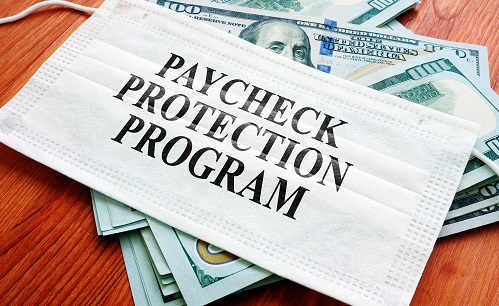Congress is in recess until next month, which means there won’t be any action on a COVID-19 stimulus package until Sept. 14, when the House of Representatives returns.
That means your employees you unfortunately had to furlough or lay off won’t be getting another round of stimulus checks or the $600 in additional unemployment benefits they received back in the spring from the CARES Act. It also means that the Paycheck Protection Program — which ended Aug. 8 — won’t reopen for new applications unless Congress takes action.
Several pieces of legislation were proposed, but they all stalled in Congress as neither party agreed with the other on what the bill should include. The newest proposal being floated is a scaled-down version of these proposals that includes only $300 in unemployment benefits, a revival of the Paycheck Protection Program and liability protections that shield organizations from legal action in the event of a COVID-19 outbreak. Some of these proposals even include another round of $1,200 personal stimulus checks, but the scaled-down bill – which has yet to be officially unveiled – reportedly does not include those direct payments.
Read Next: Want to Have Your PPP Loans Forgiven? Here’s the Application.
However, any PPP revival or stimulus package will have to wait until next month, at the earliest.
The deadline to apply for a PPP loan was Aug. 8, so small businesses that didn’t apply and are now feeling the sting of COVID-19’s effect on the economy will have to wait for Congress to come to a consensus on an aid package. In the meantime, there are other avenues your business should explore if you’re in need of some relief, reports Inc.com:
- Federal disaster loans that were included in the Cares Act in March through the Economic Injury Disaster Loan program, although the relief offered via this program has been scaled back a bit.
- 7(a) loan program, the SBA’s capital loan program, was changed via the Cares Act to allow businesses to have the first six months of payments forgiven entirely.
- Main Street Lending Program, a low-interest offering for companies with less than $5 billion in annual revenue and fewer than 15,000 employees. The program was recently extended through Dec. 31.
- Employee retention tax credit, a refundable tax credit, is now equal to 50% of up to $10,000 in annual wages for each eligible employee, including the employer portion of health benefits.
Those offerings can come with downsides, like limits on what the funding can be used for, high interest rates and fees.
Do your homework and figure out which of those programs works for your business, because Congress isn’t going to pass anything for a few weeks.










